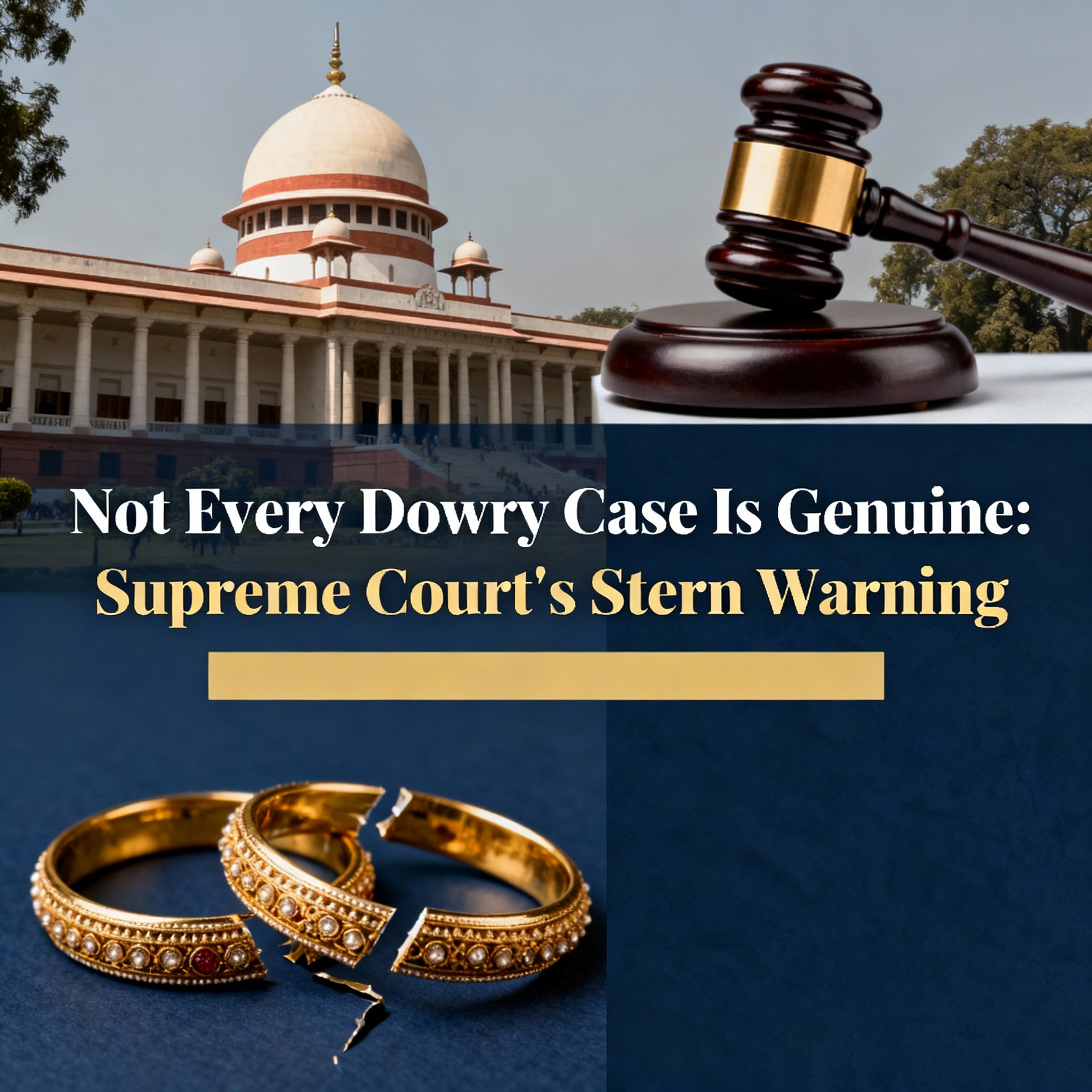Introduction – Supreme Court on Section 498A IPC: False Complaints Give Husbands and Mothers-in-Law Sleepless Nights
It’s a fear many families know too well the knock on the door, the nervous talk about dowry, and the cloud of allegations poured into a criminal complaint. The Supreme Court on Section 498A IPC recently stepped into the thick of this debate, sounding the alarm about just how many husbands and mothers-in-law lie awake, wondering if a false case will upend their lives.
Supreme Court on Section 498A IPC: Behind One Complaint, Three Lives on Trial
Picture the scene in Meerut: a marriage that started in 2014, but happiness quickly soured. Discord drove the complainant out of her matrimonial home within months. On a November morning in 2023, she filed an FIR against not just her husband, but also her brother-in-law and mother-in-law. Section 498A IPC was front and center, joined by charges under the Dowry Prohibition Act and a claim of physical hurt under Section 323. The complaints ranged from harassment for dowry right after marriage to an alleged coerced consent letter, and a medical tragedy paralysis supposedly triggered by sustained torment.
Supreme Court on Section 498A IPC: Vague Accusations Don’t Cut It
The first round went against the accused family, with the Allahabad High Court refusing to quash the FIR. But the Supreme Court wasn’t satisfied with rubber-stamping accusations. Justice B.V. Nagarathna and Justice R. Mahadevan took apart the complaint, hunting for details. “Vague and omnibus” was their verdict there just wasn’t any meat on the bones. No incident was pinned down, no facts connected directly to the brother-in-law, no act of “hurt” anyone could actually point to.
Supreme Court on Section 498A IPC: When the Law Is Used for Revenge
The bench didn’t mince words. “There is a growing tendency to misuse provisions like Section 498A IPC as a tool for unleashing personal vendetta against the husband and his family,” they cautioned. This was not a lone voice: earlier cases like State of Haryana vs. Bhajan Lal and Dara Lakshmi Narayana vs. State of Bihar have warned that sweeping, unsupported claims damage the credibility of real grievances and burden innocent families. Generalized gripes, without solid proof, can’t send someone to jail.
Supreme Court on Section 498A IPC: Quashing and Mediation Over Prosecution
This wasn’t just about tossing out a flimsy complaint. The Supreme Court on Section 498A IPC nudged all sides husband, wife, and mother-in-law to mediation, hoping that cooler heads might prevail and avoid a bitter trial. At the heart of the order was a principle older than any statute: law should be used to heal, not just to punish. Quashing the criminal case, the Court reminded the country that reconciliation is better than endless litigation when evidence doesn’t stack up.
Conclusion – Supreme Court on Section 498A IPC: Why Scrutiny Is Needed Before Prosecution
The justices sent a clear signal to lower courts and the police: don’t rush. Look for specifics, not just stories. Protected rights are vital, but so is shielding families from drawn-out courtroom battles waged over rumors and personal grudges. The Supreme Court on Section 498A IPC hopes this ruling encourages more careful scrutiny and maybe fewer sleepless nights.
Author Information:
By Karthikeyan Ganesan, a law student from KKC College of Law, reporting on law and technology for Nyayasphere. Karthikeyan always likes to stay updated with current trends and important information regarding the law and cases across the country.

